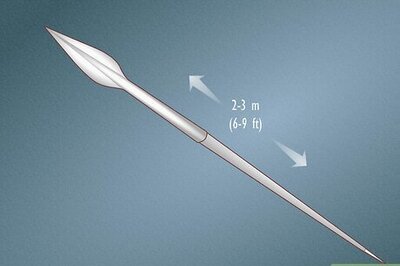
views
New Delhi: The government is not going to change farmers'' share of premium on crops insured under the Pradhan Mantri Fasal Bhima Yojana (PMFBY), a senior agriculture ministry official said on Friday.
The PMFBY, which was launched in February 2016 by Prime Minister Narendra Modi, provides comprehensive crop insurance from pre-sowing to post-harvest period against non-preventable natural risks at an extremely low premium rate of 2 percent for Kharif crops, 1.5 percent for rabi crops and 5 percent for horticulture and commercial crops.
"It is not correct farmers'' premium has been changed. Farmers premium under the PMFBY is not going to change under any circumstances," PMFBY CEO and Joint Secretary in the Agriculture Ministry Ashish K Bhutani said at an agri-summit organized by BusinessLine newspaper here.
Bhutani clarified that neither farmers'' premium has been changed nor it will be withdrawn in the future.
However, the central subsidy under the scheme has been capped recently for premium rates up to 30 percent for un-irrigated areas/crops and 25 percent for irrigated areas/crops. Districts having 50 percent or more irrigated areas will be considered as irrigated areas/districts.
If a total premium is above 30 percent, then states have to decide whether to list such crops for insurance or else they have to pay the additional premium, he said.
"If the total premium rate is more than 30 percent, then it is not insurance. Such a high rate could be due to reasons like the inconsistency of data, lack of availability of structured data for 10 years and crop is not viable in that area," he added.
On criticism of delay in claim payout to farmers, the officials said it is primarily due to three reasons.
"Either the state subsidy has not come on time which is the biggest reason for the delayed payment. Second is the delay in giving the Crop Cutting Experiment (CCE) data to the insurance companies and third is the dispute raised by companies on the CCE data collected by states," he said.

















Comments
0 comment